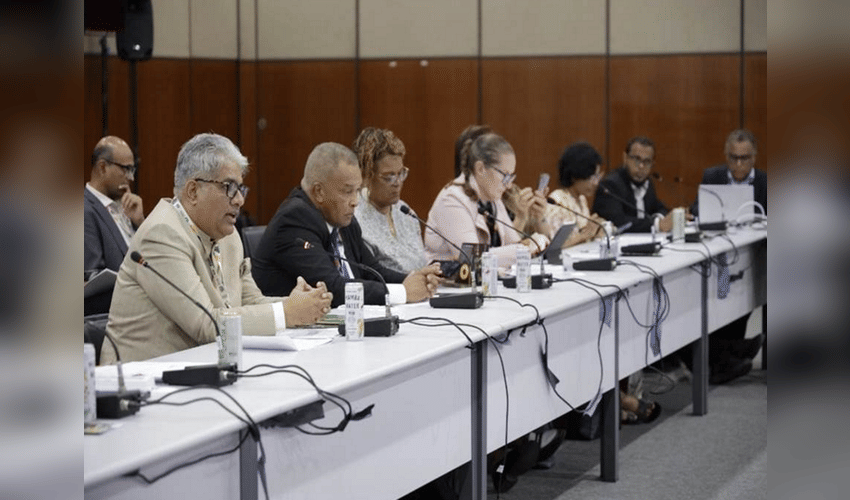World
United Global Effort Needed for Energy Security, India Tells COP30

India has called for a unified global response to energy security challenges during the COP30 climate summit in Belém, Brazil, emphasizing the urgent need for affordable, reliable, and climate-resilient energy solutions, especially for vulnerable nations like Small Island Developing States (SIDS). This appeal was made by India's Union Minister for Environment, Forest and Climate Change, Bhupender Yadav, at the High-Level Ministerial Leadership Session of the International Solar Alliance (ISA) SIDS Platform, held on the sidelines of the conference.
The session, themed "Uniting Islands, Inspiring Action – Leadership for Energy Security," brought together ministers and representatives from SIDS, ISA member countries, and partner organizations to push forward collective efforts aimed at advancing energy security through clean and affordable solar power. Minister Yadav highlighted India's remarkable progress in the renewable energy sector, noting that the country has exceeded 500 gigawatts of installed electricity capacity, with over half coming from clean energy sources. India is currently the world's fourth-largest renewable energy producer and third-largest in solar power, achievements driven by the vision of Prime Minister Narendra Modi focusing on scale, speed, and grassroots involvement.
India’s initiatives such as the PM Surya Ghar Rooftop Solar Programme, which has empowered more than 20 lakh families to adopt rooftop solar and transform their energy costs, were showcased as effective models for energy independence. Additionally, solar-powered agricultural solutions have brought new dignity and reliability to farming communities by providing clean, dependable power without diesel dependency. The Minister also highlighted India’s ambitious energy storage projects, including one in Ladakh that will store enough clean energy to power an entire city, showcasing scalable models that SIDS could emulate to reduce fossil fuel imports, lower energy expenses, and bolster climate resilience.
Emphasizing the International Solar Alliance's role as a "Global Solar Family" comprising more than 124 countries, Yadav called for shared global action to accelerate solar energy deployment, streamlined financing, and local skill development. The platform aims to build a digital and financial ecosystem to facilitate easier access to solar technologies in vulnerable regions, thereby addressing not just climate challenges but socio-economic development as well.
India's call at COP30 reflected a broader commitment to climate cooperation, urging nations to move beyond dialogue towards concrete implementation. The minister underscored that clean energy is more than technology—it symbolizes hope, empowerment, dignity, and peace, crucial for safeguarding vulnerable communities and advancing global climate goals. This united push at COP30 signals India's leadership role in driving global renewable energy adoption and highlights the importance of collaborative efforts to ensure energy security for all, especially in the face of growing climate vulnerabilities.



